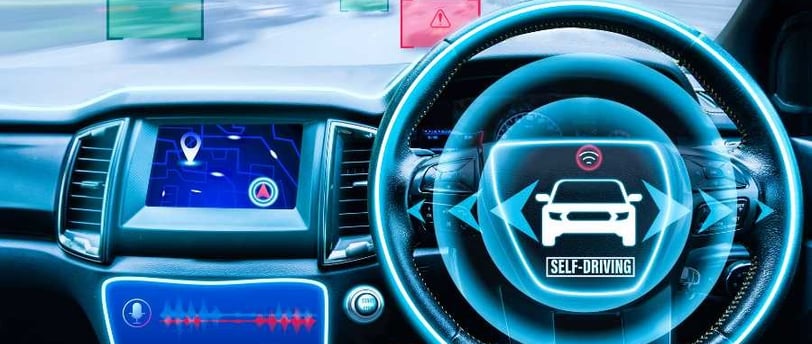The Rise of Automotive Hacking: Safeguarding Our Connected Vehicles
As our cars become increasingly interconnected and reliant on software systems, a new concern looms on the horizon: automotive hacking.
CYBERSECURITY
6/5/20232 min read


In recent years, the automotive industry has witnessed a significant transformation with the proliferation of connected vehicles. As our cars become increasingly interconnected and reliant on software systems, a new concern looms on the horizon: automotive hacking. This emerging threat has the potential to compromise the safety, privacy, and functionality of our vehicles. In this blog post, we will explore the rise of automotive hacking, its implications, and the vital security measures that both companies and users must undertake to prevent such cyber-attacks.
The Era of Connected Vehicles
Connected vehicles have revolutionized the driving experience, enhancing safety, convenience, and efficiency. From advanced infotainment systems to autonomous driving capabilities, modern cars rely on a myriad of interconnected components. These components communicate with each other and external networks, creating an intricate digital ecosystem within the vehicle.
The Rise of Automotive Hacking
As vehicles become more connected, they also become more vulnerable to cyber-attacks. The rise of automotive hacking stems from several factors, including:
1. Increasing Attack Surface: Connected vehicles rely on complex software systems, wireless communication protocols, and external networks, providing hackers with multiple entry points to exploit vulnerabilities.
2. Inadequate Security Measures: Historically, security has not been a primary concern in automotive design. Many vehicles lack sufficient safeguards, making them susceptible to hacking attempts.
3. Financial Incentives: With the advent of connected car platforms and services, automotive data has become a valuable commodity. Hackers can exploit vulnerabilities to gain unauthorized access to personal and financial information.
Implications of Automotive Hacking
The consequences of automotive hacking can be severe and far-reaching:
1. Safety Risks: Hackers can compromise critical systems, such as braking or steering, leading to accidents and potential loss of life.
2. Privacy Breaches: Connected vehicles gather vast amounts of data about their owners and their driving habits. Unauthorized access to this data can lead to privacy breaches and personal information theft.
3. Financial Loss: Vehicle theft, ransomware attacks, or unauthorized access to financial information can result in significant financial losses for both individuals and automotive companies.
Preventing Automotive Hacking
To mitigate the risks associated with automotive hacking, it is crucial for both companies and users to take proactive security measures. Here are some essential steps that can be taken:
1. Secure Software Development: Automotive companies should prioritize security in every phase of software development, conducting thorough code reviews, utilizing secure coding practices, and performing regular security assessments.
2. Regular Updates and Patches: Companies must release timely updates and security patches to address known vulnerabilities. Users should promptly install these updates to ensure their vehicles are protected against the latest threats.
3. Network Segmentation: Separating critical vehicle systems from non-critical systems, such as infotainment, can minimize the potential attack surface and limit the impact of a breach.
4. Intrusion Detection Systems: Implementing intrusion detection systems can help identify and respond to malicious activities, alerting both the user and the company to potential threats.
5. User Awareness and Education: Users should be educated about safe practices, such as avoiding untrusted Wi-Fi networks, not downloading unverified apps, and being cautious about granting permissions to connected services.
6. Collaboration and Standards: The automotive industry should collaborate to establish robust security standards and best practices. Sharing information about vulnerabilities and threats can enable faster detection and response to potential attacks.
As our vehicles become more connected and reliant on software, the threat of automotive hacking grows. It is essential for both automotive companies and users to prioritize security and take proactive measures to safeguard our connected vehicles. By implementing secure software development practices, conducting regular updates, segmenting networks, and fostering user awareness, we can work together to mitigate the risks and build a safer future for connected mobility.
OUR ADDRESS
12110 Sunset Hills Road, Suite 600 Reston, VA 20190
CONTACT US
WORKING HOURS
Monday - Friday
9:00 - 18:00
Copyright © 2023 Holistic Strategies LLC. All rights reserved.
